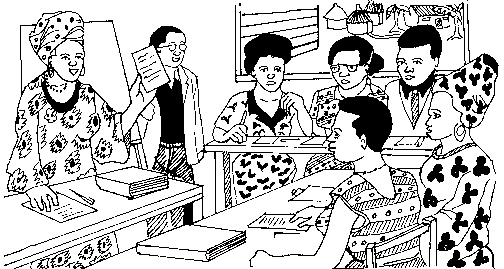Tweet
Translations:
'العربية / Al-ʿarabīyah
Català
中文 / Zhōngwén
Deutsch
English
Español
Filipino/Tagalog
Français
Ελληνικά / Elliniká
हिन्दी / Hindī
Italiano
Polszczyzna
Português
Română
Српски / Srpski
Other formats:
Other Pages:
Modules
Site Map
Key Words
Contact
Utility Documents
Useful Links
Social Research
KEEPING RECORDS
Managing Information
by Phil Bartle, PhD
Workshop Handout
What kinds of information should be recorded by mobilizers?
Good management requires good information. More information is not necessarily better information. The information needs to be useful, and it must be easily retrieved.
The start of good information is the recording done by mobilizers. It is important for their coordinator (manager) to ensure that they clearly understand what kinds of records they should keep, how they should keep them, and how they should make the information available to manage a mobilization programme.
This handout briefly reviews what kinds of information is required. It is general; specific details apply to different programmes, which you must define. Information is needed about each community, before, during and after mobilisation intervention. You will make your own list of kinds of information, but it would include social indicators, predictions of degree of unity, potential for unity organizing, estimates of success in self help mobilizing, baseline and social changes associated with the intervention.
Mobilizers should keep records of daily and monthly planned and unplanned activities.
Information is needed about what resources available to each community can be tapped. These include extension services, sources of physical resources, sources of monetary resources, skills and available training resources among, for example retired specialists residing in the communities, other available skills, and estimates of costs in terms of fees or honoraria to be paid for such services.
Information is needed about past strategies, including those which were successful (and why), those which were failures (and why), reasons for events happening as they did, and lessons learned in previous interventions.
The modes of communication between mobilizer and manager need to be arranged. Written reports are the most effective, as verbal reports do not become part of the corporate memory of the programme. A module here is dedicated specifically to writing reports, which you should examine. See also comments on Paper Trail.
––»«––
A Workshop:
 |